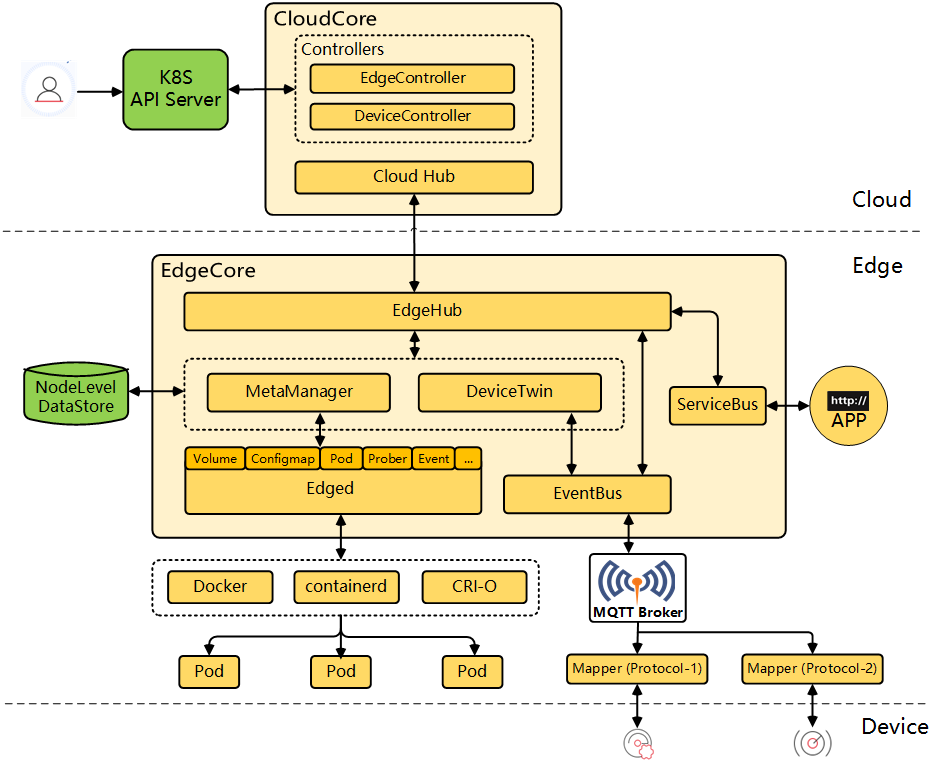The KubeEdge mission
Our goal is to make an open platform to enable Edge computing, extending native containerized
application orchestration capabilities to hosts at Edge. which built upon kubernetes and provides
fundamental infrastructure support for network, app.deployment and metadata synchronization
between cloud and edge. It also supports MQTT and allows developers to author customer logic
and enable resource constraint devices communication at Edge. Kubeedge is the open platform to enable Edge computing.
The advantages of Kubeedge include mainly:
Edge Computing
With business logic running at Edge, volumes of data can be secured & processed locally. It reduces the bandwidth request between Edge and Cloud; increases the response speak; and protects customers’ data privacy.
Simplify development
Developers can write regular http or mqtt based applications; containerize and run anywhere at Edge or Cloud.
Kubernetes-native support
With KubeEdge, users can orchestrate apps, manage devices and monitor app/device status against Edge nodes like a normal K8s cluster in the Cloud.
Abundant applications
You can easily get and deploy complicated machine learning, image recognition, event processing and other high level applications to your Edge side.
And so on
What is KubeEdge?
KubeEdge is an open source system for extending native containerized application orchestration capabilities to hosts at Edge. It is built upon kubernetes and provides fundamental infrastructure support for network, app. deployment and metadata synchronization between cloud and edge.
Workflow
The basic workflow is:
- Make sure some basically tool in your Env, such as
mosquittoanddocker. - Download the Kubeedge scripts and configuration files.
- Customize the configuration.
- Run
mosquittoandKubeedgebinary to your chosen environment.
You adapt the configuration to choose the platforms and services that you want
to use for your environment: certfile, keyfile, and so on.
Components
KubeEdge is composed of these components:
- Edged: Edged is an agent running on edge node for managing user’s application.
- EdgeHub: EdgeHub is a web socket client, which is responsible for interacting with Huawei Cloud IEF service, including sync cloud side resources update, report edged side host and device status changes.
- EventBus: EventBus is a MQTT client to interact with MQTT server(mosquitto), offer subscribe and publish capability to other components.
- DeviceTwin: DeviceTwin is responsible for storing device status and syncing device status to the cloud. It also provides query interfaces for applications.
- MetaManager: MetaManager is the message processor and between edged and edgehub. It’s also responsible for storing/retrieving metadata to/from a lightweight database(SQLite).
Architecture

Getting involved
There are many ways to contribute to Kubeedge, and we welcome contributions! Read the contributor’s guide to get started on the code.